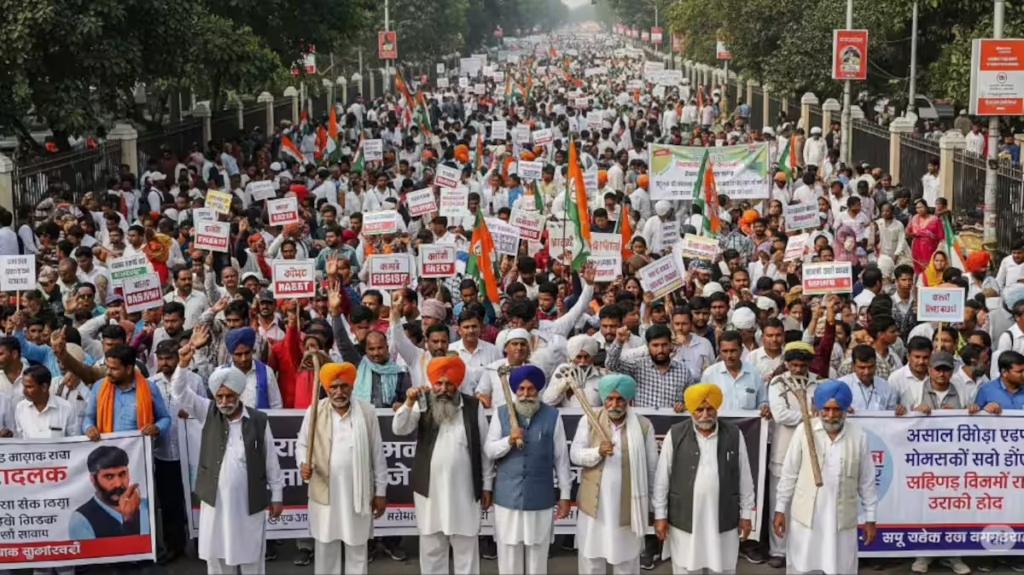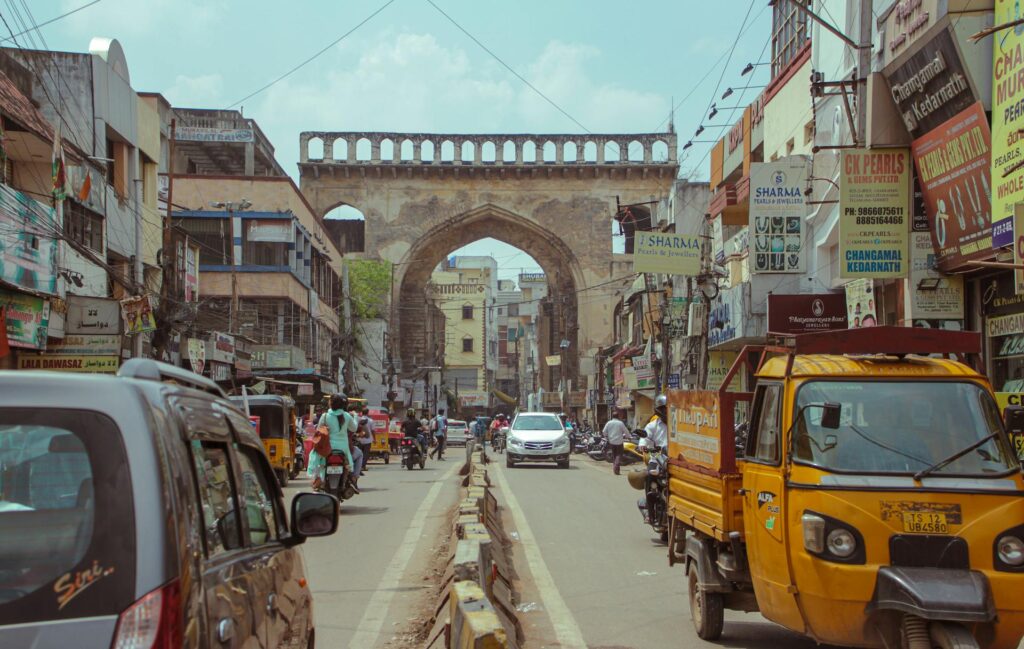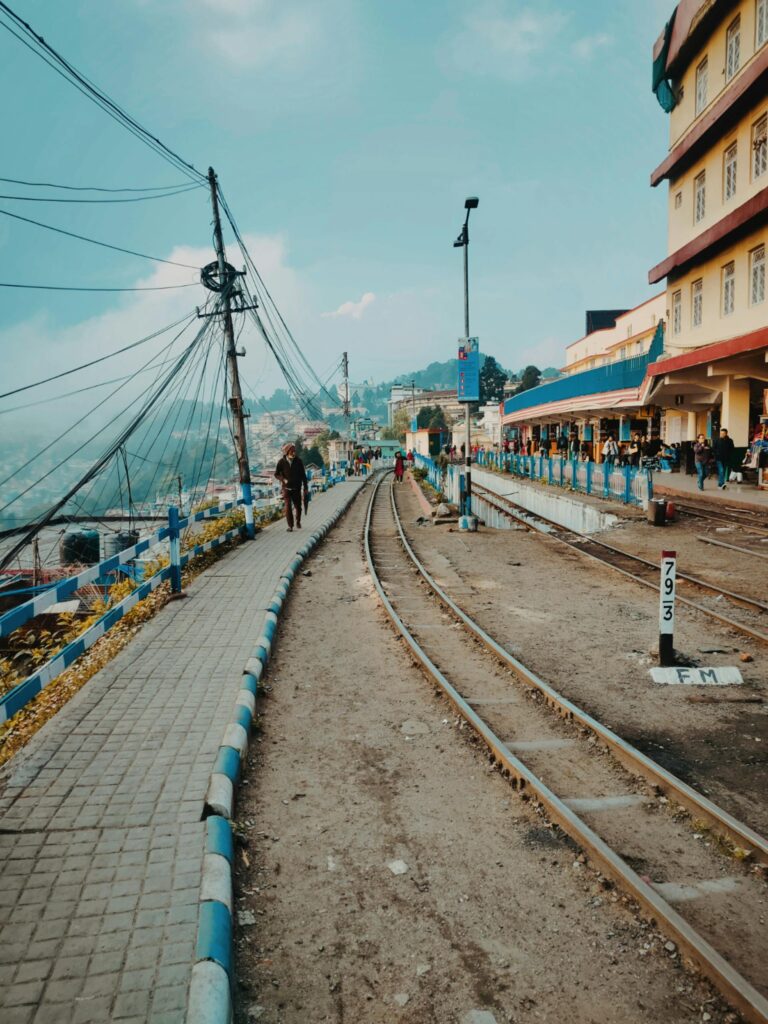On July 9, 2025, India will witness a massive Bharat Bandh, a nationwide strike called by a coalition of 10 central trade unions, supported by farmers’ organizations and rural workers. With over 25 crore workers expected to participate, this Bharat Bandh 2025 protests what organizers describe as the central government’s “anti-worker, anti-farmer, and pro-corporate” policies. From banking disruptions to transport blockades, the strike is set to impact businesses and public life significantly.
Here’s a detailed look at the business impact, public life impact, and key details, optimized for high SEO performance.
Why Is Bharat Bandh 2025 Happening?
The Bharat Bandh on July 9, 2025, is a response to policies that trade unions, including AITUC, INTUC, CITU, and SEWA, claim prioritize corporate interests over workers and farmers.

Key grievances include:
- Four new labour codes that allegedly weaken workers’ rights, such as collective bargaining and strike protections.
- Privatization of public sector enterprises, leading to job insecurity.
- Rising unemployment and inflation, with no new job opportunities for youth.
- Hiring retired staff in sectors like Railways and mining, sidelining unemployed youth.
- Rural distress, with farmers opposing policies that favor corporate agriculture.
Supported by the Samyukta Kisan Morcha and rural workers’ unions, the strike aims to pressure the government into addressing these 17 core demands.
Business Impact of Bharat Bandh 2025
The Bharat Bandh 2025 is poised to disrupt multiple sectors, affecting businesses across India.
Here’s how:
1. Banking and Financial Services
Banking disruptions are expected as employees from public sector banks join the strike. Services like cheque clearing, cash withdrawals, and customer support may face interruptions, particularly in urban areas.
Private banks may operate with reduced staff, but online banking and ATMs are likely to remain functional.Stock markets (NSE, BSE) are expected to remain open, as no official closure has been announced.

2. Industrial and Mining Sectors
- Coal mining and factory production will face significant halts, with workers from NMDC and government-operated steel and mineral companies participating. This could disrupt supply chains for energy and manufacturing industries.
- Construction and highway projects may stall, impacting infrastructure firms and related businesses.
3. Postal and Logistics Services
Postal services will likely see delays in mail delivery and courier operations, affecting e-commerce and logistics companies. Businesses reliant on just-in-time delivery may face operational challenges, especially in urban hubs like Delhi, Mumbai, and Bengaluru.
4. Regional Business Variations
- States like Uttar Pradesh, Bihar, and Kerala are expected to see stronger disruptions due to high union activity and regional protests (e.g., Bihar’s voter list revision bandh).
- In contrast, past bandhs in Rajasthan, Karnataka, and Maharashtra have had minimal business impact, suggesting some regions may function near-normally.
Business Mitigation Strategies
Plan for delays: Businesses should stock critical supplies and reschedule non-urgent deliveries.
Remote operations: Encourage work-from-home where possible to avoid transport disruptions.
Monitor local updates: Check regional advisories for protest hotspots, especially in urban industrial zones.

1. Public Life Impact of Bharat Bandh 2025
The Bharat Bandh 2025 will significantly affect daily life, particularly in urban and industrial areas.
Here’s what to expect:
1. Public Transport Disruptions
- Public transport, including buses, taxis, and app-based cabs, will face major disruptions due to road blockades and protest rallies. Commuters in cities like Bengaluru, Lucknow, and Patna should anticipate delays.
- Railway services are not officially part of the strike, but train delays may occur due to protests near tracks or stations.
- Metro services in cities like Delhi and Mumbai are expected to remain operational but may see higher crowds due to reduced bus availability.
2. Schools, Colleges, and Offices
Schools and colleges are expected to remain open, with no official closure announcements. However, transport issues may lead to low attendance in states like Tamil Nadu and Puducherry, which may see near-complete shutdowns.
Government offices will likely function, but services may be slowed by staff participation in the strike.
Private offices are advised to stay open, but employees may face commuting challenges. Work-from-home policies could mitigate this.

3. Electricity and Essential Services
Power sector employees (27 lakh workers) are joining the strike, potentially causing electricity supply disruptions in some regions, particularly Uttar Pradesh.
Emergency services (hospitals, ambulances, water supply) will remain operational, as assured by authorities.
Markets are expected to stay open, but local shutdowns may occur in protest-heavy areas like Chhota Udepur or Surendranagar (based on past bandh trends).
4. Regional and Political Dynamics
Uttar Pradesh has seen high alert status with increased security due to planned rallies and chakka jams.
Bihar faces dual disruptions from the national bandh and a state-specific protest over voter list revisions.
Opposition parties and the Samyukta Kisan Morcha have extended support, amplifying the strike’s reach, especially in rural areas.

Public Safety and Recommendations
Avoid protest areas: Stay clear of rally hotspots, especially in urban centers and industrial zones.
Plan travel: Allow extra time for commutes and consider metro or personal vehicles where possible.
Stay informed: Follow local news and government advisories for real-time updates.
Critical Perspective: Is Bharat Bandh 2025 Justified?
While the Bharat Bandh 2025 highlights genuine concerns—unemployment, labour rights erosion, and rural distress—its effectiveness remains debatable. Past bandhs (e.g., 2020, 2022) disrupted public life but yielded limited policy changes. Critics argue that strikes burden small businesses and daily-wage workers more than policymakers. Meanwhile, the Confederation of All India Traders (CAIT) and All India Transporters Welfare Association (AITWA) have distanced themselves, citing lack of consultation by organizers, suggesting a lack of universal support.
The government’s silence on the 17 demands fuels discontent, but without dialogue, the bandh risks being a symbolic gesture rather than a catalyst for reform. Businesses and citizens must brace for disruptions while questioning whether such protests can truly shift India’s economic trajectory.
Conclusion
The Bharat Bandh on July 9, 2025, will be one of India’s largest worker-led protests, with 25 crore participants challenging government policies. Businesses face disruptions in banking, mining, postal services, and supply chains, while public life will see transport blockades, power outages, and potential regional shutdowns.
While schools, offices, and emergency services are expected to remain operational, commuters and businesses must plan ahead. Stay updated with local advisories and navigate this nationwide strike strategically.
Share this article for the latest Bharat Bandh 2025 updates and follow us for more insights on India protests and economic impacts!

Comments